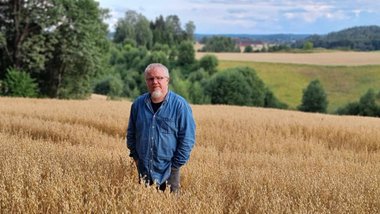Ukrainian-Lebanese documentary film Three Stories of Galicia shown in Ukraine
The showing of the documentary film Three Stories of Galicia was held in five cities in Ukraine – Kyiv, Kharkiv, Lviv, Chernivtsi and Odesa – from November 15 to 21, 2011. The film directors are Olha Onyshko, who is Ukrainian, and Sarah Farhat, who is Lebanese. Through the stories of three lives, the film tells about WWII and the history of the Holocaust and the Ukrainian liberation movement, as well as relations between Ukrainian, Poles and Jews in Galicia, Ukrainian Greek-Catholic Church Information Department reports.
In the first story of a Jewish community representative, Aharon Weiss shares his memories of how he, along with seven other Jews, were hiddenand fed by a Ukrainian woman, and then how Weiss’ family rescued from the Soviets a Ukrainian who served as a Nazi policeman.
The second story tells about Olia Ilkiv, the messenger of the commander of the UPA Roman Shukhevych, who spent 14 years in prisons, as her children grew up in an orphanage, where they were told their parents are criminals. At the time of filming she was 90 years.
The third story is of a Polish priest in Przemysl Stanislav Bartminski, who cared for the Ukrainian churches and cemeteries. He ministered in aparish, where three peoples – Ukrainian, Polish and Jewish – lived for centuries, and who then were forced to leave their ancestral lands.
The world premiere took place in Germany, USA and France. The filmmakers collected material for four years, traveling through Galicia.
“Many stories were left outside the frame. We put emphasis on people who ‘created the civilization of Galicia,’ which, unfortunately, was destroyedafter WWII,” filmmaker Olha Onyshko told a correspondent of the Lviv newspaper Vysokyj Zamok.









